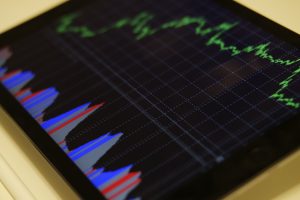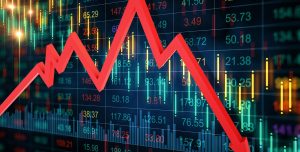Forex trading is a big financial market with a lot of potential for growth and profit. One of the main participants in the Forex market is the banking sector, which employs an innovative approach to generate profits. They have been the envy of many retail traders with their knowledge, resources, and trading methods. To trade Forex like the banks, you need to understand the market and the factors that influence it. Following this comprehensive guide, we will be reviewing the secrets of trading Forex like the banks.
1. Understand The Forex Market
In order to trade successfully in the Forex market, one must have an in-depth understanding of its complexity and volatility. Banks employ a group of analysts to monitor the market and identify emerging opportunities. Additionally, they have access to current information that enables them to make wise decisions.
To trade Forex like a bank, you need to understand the different factors that influence the market. The knowledge of Fundamental and technical analysis are applied here.
- Fundamental Analysis
Fundamental analysis is one of the main tactics used by banks in Forex trading. Studying economic indicators, geopolitical developments, and central bank policies that influence currency prices are all part of this process. Banks have specialized teams of analysts who carefully evaluate the state of the world economy and any potential effects on currency pairs.
As a retail trader, staying updated on economic data releases and understanding their implications can give you an edge in making informed trading decisions.
- Technical Analysis
While fundamental analysis sets the foundation, banks also use technical analysis to identify entry and exit points for their trades. Banks are able to assess market sentiment and predict prospective price changes with the aid of chart patterns, trendlines, moving averages, and other technical indicators. Learning technical analysis can significantly improve your ability to recognize trading opportunities and comprehend price trends as a retail trader.
2. Develop A Trading Strategy
Banks trade in the Forex market using a variety of strategies to reduce risk, safeguard their holdings and that suits their trading style. Retail traders can use simpler strategies to reduce their exposure to market changes, such as diversification, employing correlated pairs, or combining long and short positions, even if certain hedging techniques may be complex.
To trade like a bank, you need to develop a strategy that suits your trading style and risk tolerance.
3. Consider Using Leverage
Leverage allows traders to control large positions with a small amount of capital. Banks use leverage to increase profits, but they also prudently employ it to control risk. You must utilize leverage carefully if you want to trade like a bank. Retail and institutional traders must both avoid the frequent dangers of overleveraging. High leverage ratios can increase profits but also increase losses, which can result in account wipeouts. You should only use leverage that you can afford to lose, and you should not overextend yourself.
4. Risk Management
You must properly control your risk if you want to trade Forex like a bank. Effective risk management is very important when trading Forex. Banks are known for dedication to risk management guidelines, making sure that no single move puts their entire portfolio in risk. Limiting your risk exposure per trade, placing stop-loss orders, and employing the proper position sizing as a retail trader will help you safeguard your money and maintain long-term profitability. You should also diversify your portfolio to reduce the impact of market volatility.
5. A long-term Plan
Banks frequently approach their trading activity with a long-term perspective. While retail traders frequently concentrate on short-term gains, adopting a longer time horizon can offer a more comprehensive perspective of the market and possibly result in more significant earnings. To balance fast gains and stable growth, short-term trading and long-term investment strategies can be used together.
6. Liquidity And Order Flow
Banks profit from having direct access to liquidity and order flow, which can provide them significant information about the condition of the market. Even while retail traders might not have the same level of access, monitoring market volume and order movement can nevertheless provide helpful hints to spot possible price reversals or trends.
Conclusion
Forex trading like the banks requires a deep understanding of the market, coupled with disciplined execution and risk management. While retail traders may not have access to the same level of resources, adopting the strategies used by banks can significantly enhance their trading performance. Trading like a bank also requires proper risk management and leverage use. You can improve your chances of success in the Forex market by adhering to the guidelines in this content.






